Men Elite cycling passion on the scheldt: men
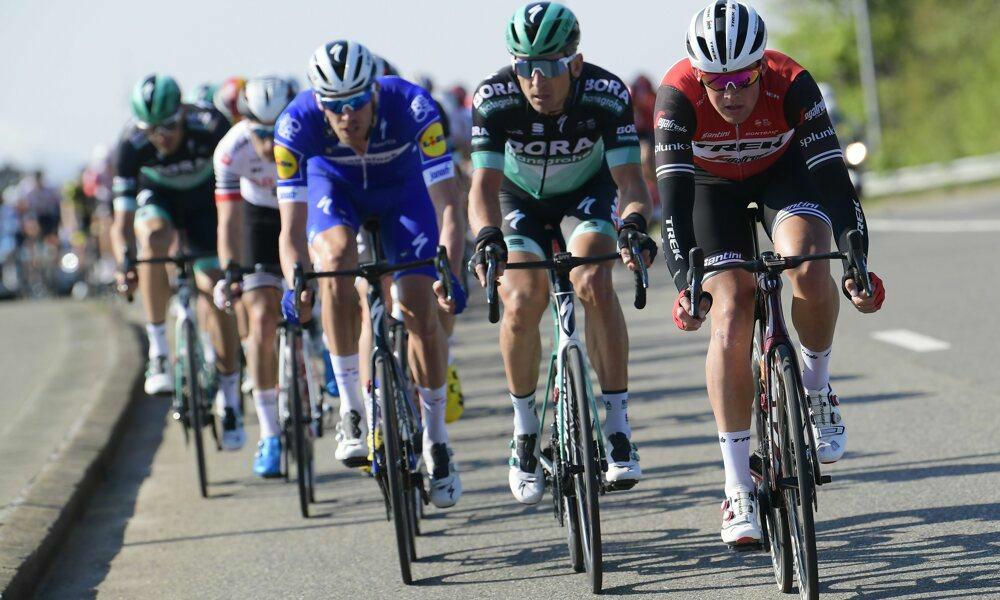
2020 - ...
UCI ProSeries
The cycling world is changing quickly: from ProTour to World Tour, from continental races to ProSeries. The Scheldeprijs evolves with it. The third decade of the twenty-first century undoubtedly contains even more news. It is currently too early to estimate everything, let alone to predict. It is certain that our healthy century-old, under the banner of Flanders Classics, does not want to miss the cycling boat. Be sure we are ready for it, starting from 20-20!
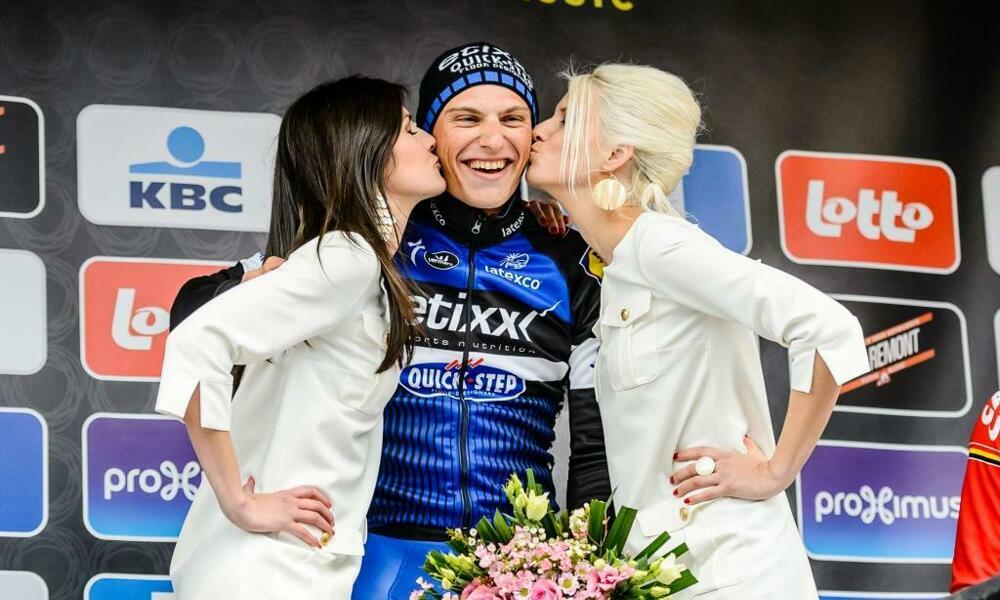
2010 - 2019
Flanders Classics
The beginning of the new decade is spectacular. Wouter Vandenhaute (Woestijnvis) is the new owner of the Tour of Flanders (and of the Omloop Het Nieuwsblad and Paris-Brussels). He wants to increase the prestige of the Flemish Classics and he unifies six cycling races under the title “Flanders Classics”: Tour of Flanders, Omloop Het Nieuwsblad,Dwars door Flanders, Ghent-Wevelgem, Brabantse Pijl and the Scheldeprijs.. Again the dates shift and the Scheldeprijs is held in the week between the Tour of Flanders and Paris-Roubaix. As a result the teams remain in the North of Belgium and consider the Scheldeprijs as an ideal intermezzo between these two monuments. Antwerp, starting place since 1996, was replaced by the Terneuzen, Netherlands in 2018, after which the riders made a big loop through the windy Zeeland. Nevertheless, the 2018 and 2019 editions also ended in a mass sprint, admittedly from a thinned peloton.
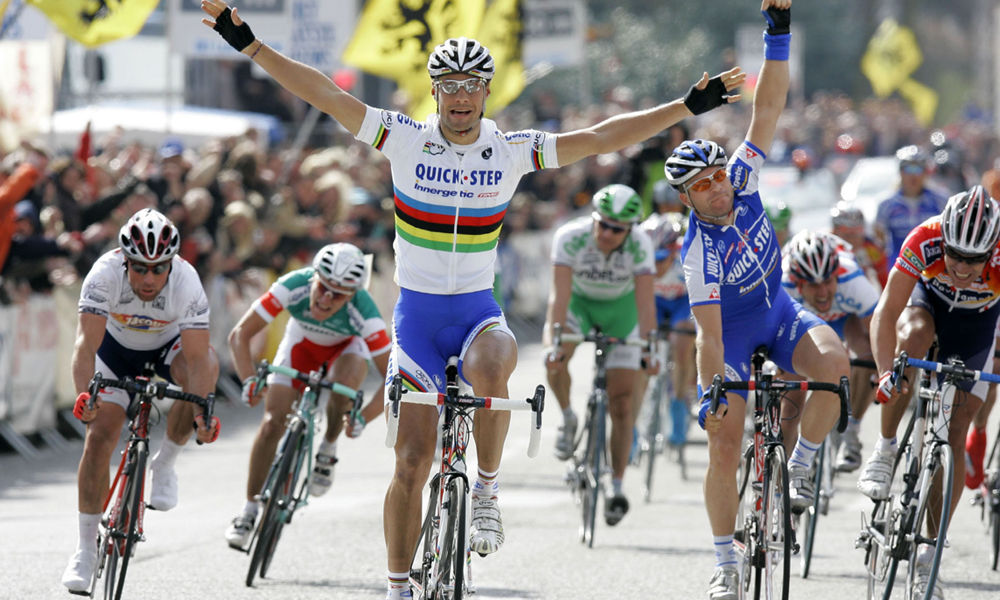
2000 - 2009
The new century
The beginning of the 21st century brings a lot of innovation. Both from an organizational as well as a sports perspective. The date change is specially important, from 2003 onwards the Scheldeprijs is held in the week between Paris-Roubaix and the Amstel Gold Race. This change is imposed by AIOCC and the UCI and does not really benefit the Scheldeprijs. Every year again it is a struggle to put together a interesting field of participants.. Nevertheless, the organization cannot complain about the quality of the winners. Tom Boonen and Mark Cavendish (both twice), Robbie McEwen and Alessandro Petacchi are big names on the honors role. Therefore, the Scheldeprijs, the oldest Flemish cycling race, retains its place amongst the April classics.
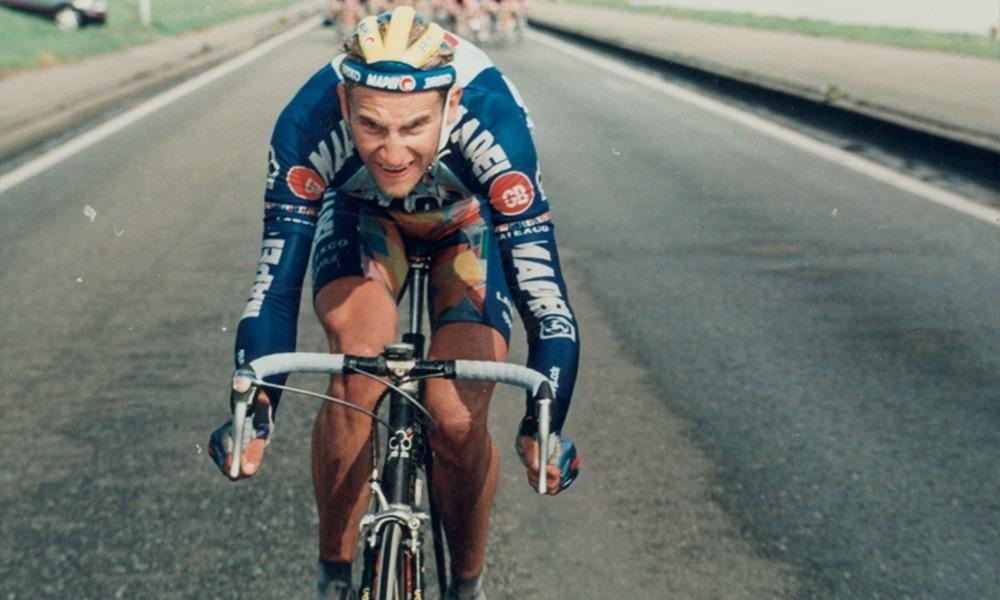
1990 - 1999
THE NINETIES
Again a turbulent period in the history of the ancient Scheldeprijs. Highlights are certainly the two victories of Mario Cipollini and the stunt of Frankieboy 'VDB' in 1996. Also the victory of Peter Van Petegem, whose career was sidetracked in 1994, is remarkable. On the other hand, the cycling race of 1995 and especially of 1998 is a disappointment. Organizationally there are also a lot of changes. In 1994, the Scheldeprijs is upgraded to the first category of races and held in the week between Paris-Roubaix and Liège-Bastogne-Liège. In 1995 they moved again to the week between Liège-Bastogne-Liège and the Amstel Gold Race. In 1998 the organization changes the route and once again opts for a grand tour through the Antwerpse Kempen. A big change and improvement occurs in 1996 when the start is given at the Market Square in Antwerp, a noticeable added value for the race.
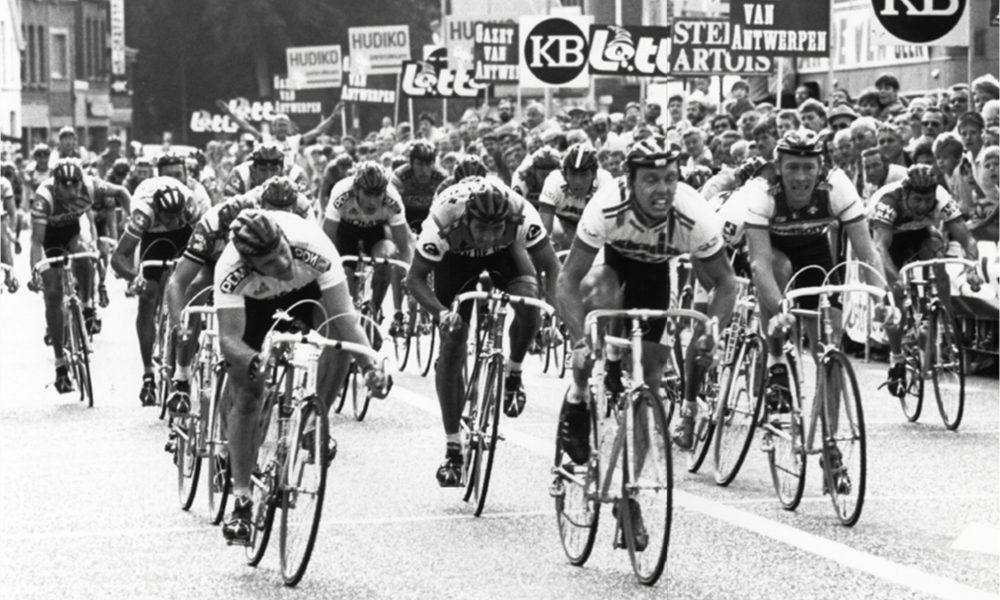
1980 - 1989
The eighties
The decade of the big change. In 1982 organizer René De Vos leaves Schoten, becomes ill and dies short afterwards. The big stars stay away, or abandon the cycling race ostentatious (like Gerrie Knetemann in 1983). In 1982, the oldest Flemish and Antwerp cycling classic, reaches its all-time low. The Tour is held a week later and the Scheldeprijs is having fierce competition from a criterion in Ronse. All big riders stay away and the Scheldeprijs becomes a glorified criterion including the local laps. In 1983 Hector Jansen (° 1928) takes the lead. Hector is a businessman and a negotiator. He wants to bring the Scheldeprijs back to were belongs. His first priority is to find another date. His first attempt fails, and his second attempt does not immediately result in success either. In 1986 the Scheldeprijs was held on August 25th. But then a revolutionary change happens. From 1987 onwards, the Scheldeprijs is organized in April. The first years (1987 and 1988) after the Amstel Gold Race, in 1989 between Liège-Bastogne-Liège and the Amstel Gold Race. The Scheldeprijs is clearly back on track.

1970 - 1979
The seventies
Under the direction of René De Vos, the race continuous to be organized on the annual fair on Tuesday’s. Not always the most easiest date. Nevertheless, the honors list in the seventies remains impressive. Even more, the biggest Belgian champions - Merckx, De Vlaeminck, Maertens – are on the podium. Even Didi Thurau, the German hero, wins in front of the Schoten’s municipality building. But also the Scheldeprijs is not immune to the ghost of doping. In a disputable doping affair Staf Van Roosbroeck will lose his second victory in 1976 ...
Photo The podium of the 1975
F.l.t.r. Marcel Imler (mayor of Schoten), Paul Mahlman (Het Laatste Nieuws), Briek Schotte (sport director and winner of the Scheldeprijs 1955), Ronald De Witte (winner) and René De Vos (organizer).

1960 - 1969
The sixties
The Scheldeprijs remains at par. The road race is either organized ahead of the Belgian Championship or the weeks before the World Championship. The honors list looks terrific. At the organization committee, the legendary Stan De Deken (° 1887) is replaced by Gust Mertens, later by René De Vos, who would sustained this for about fifteen years. At the end of this decade - in 1968 - the championship of Antwerp disappears as a part of the Scheldeprijs.
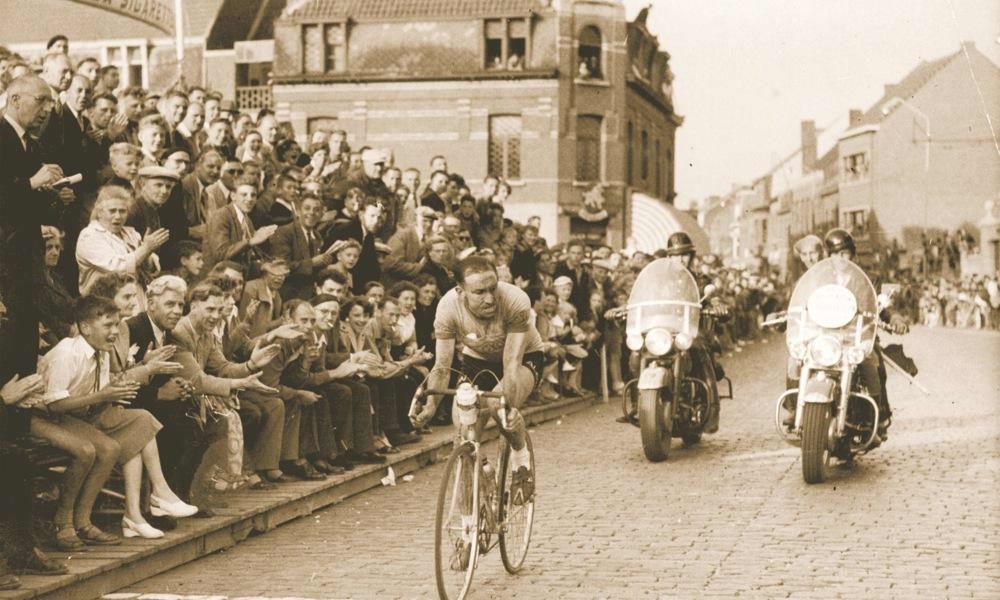
1950 - 1959
The fifties
The beginning of the golden era for bicycle races. The first years after the war were still somewhat hesitant but now it is the time of abundance and wealth. In all European countries there are great champions: in Italy Coppi-Bartali and also Magni, in Switzerland Koblet and Kubler, in Belgium Van Steenbergen, Schotte and Ockers, in the Netherlands Schulte, van Est, Wagtmans, in France Bobet and Geminiani, later followed by Anquetil and Darrigade, in Spain Bahamontès and Miguel Poblet. Behind these champions there is a large group of other excellent riders. There was still no television at that time (1950-1954) and the candy wraps were decorated with pictures of cyclists. The newspapers were filled with big stories and the magazines showed great and beautiful pictures of the races.

1946 - 1949
The big revival
After a one- year break, the Scheldeprijs returns to Schoten, where it found it’s home since 1926. In the spring of 1946 Milan-Sanremo, the Tour of Flanders, Paris-Roubaix, Paris-Brussels and all other classic one-day races were organized. The Tour de France it is still needs another year but a few stage races were already organized. The crowd is enthusiastic again and, fortunately, the sport takes again the upper hand. Stan De Deken and his friends prepare with a lot of ambition the organization. No less than four races are programmed: independents and novices (the term beginners has disappeared) on Monday, July 29 and on Tuesday July 30 professional riders and amateurs. In every category the Champion of Antwerp is crowned. All Antwerp riders and fans await with great impatience the Scheldeprijs ‘s in Schoten.

1941 - 1944
The difficult years - fair in hell
In 1940 it was impossible to organize cycling races. The second world war started and all sports activities were halted. But a year later it was a different story. The Germans recognized that the tired and tested population could use some amusement and distraction. That is why many sports competitions, including the Scheldeprijs in Schoten, were organized. Not longer during the annual fair on Tuesday’s but on Sunday, August 24th instead.
Photo: the final sprint at the juniors race in 1942. Rik Van Steenbergen (1924-2003), Antwerp Sportsman of the 20th century, won as newcomers in 1941 and as junior in 1942, although he would never win the Scheldeprijs as a professional. Even in 1966, 25 years after his first victory, he was still at the start. Unfortunately Rik is one of the few big names that is missing on the Scheldeprijs’ honor roll.
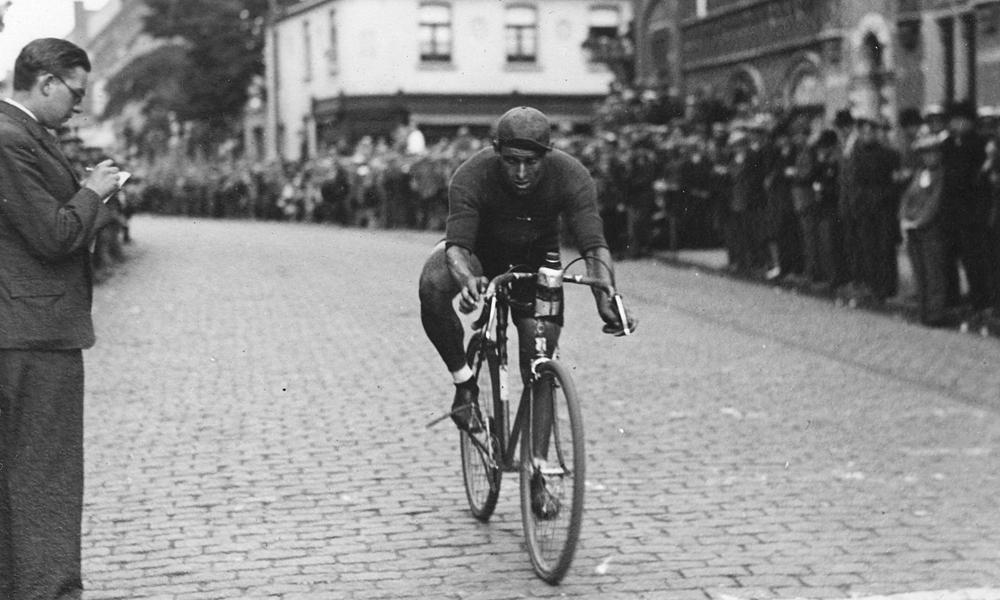
1930 - 1939
At the fairground
During the 30-ies, the Scheldeprijs was always organized during the annual fair in Schoten on the Tuesday after the 4th Sunday of July. Initially, it was a race in-line but in the late 30s local laps became a part of the race. The Scheldeprijs became more and more a local affair for Schoten. This approach did perhaps detract from the 'classic' nature of the Scheldeprijs, but the race managed to stay liv alongside the famous “8 van Brasschaat” (fully supported by Alfred Martougin, who lived in Brasschaat) and the “Schaal Sels” in the adjacent town Merksem. It is remarkable that both of these races were also held during the annual fair on Tuesday’s.
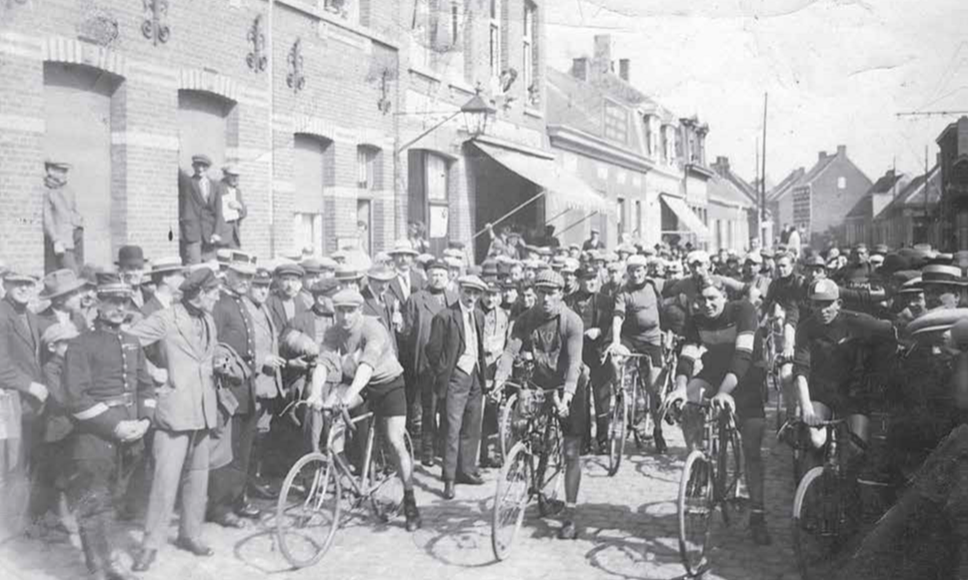
1926 - 1929
Finally a permanent home
With the move to Schoten and the cooperation of the popular Flemish sports newspaper, Sportwereld, from Karel Van Wijnendaele, the Scheldeprijs finds a permanent home. A year before the Scheldeprijs seemed to be nearly done with a road race for amateurs in Hoboken. Specially Achiel Willemsen and Stan De Deken worked courageously to the completion of the 'new' Scheldeprijs. The local council of the municipality Schoten also fully supports the organization.

1919 - 1925
Homeless
After four black war years, the ordinary life gradually resumed in 1919. Also the world of sport flourished again. Most cycling races, of which the last one was held in 1914,returned. Also the Scheldeprijs. However, it would take until 1926 and the final move to Schoten, before the oldest Flemish road race found a permanent place. We follow the homeless Scheldeprijs on his wanderings, from 1919 to 1925.
Photo: Title page Sport Illustration, 4th edition, nr 15 of Friday, May 16, 1924. The peloton, with Gerard Debaets and Verschueren in the lead, rides over the bridge in Duffel.

1907 - 1914
The start
“De Groote Scheldeprijs”, a beautiful road race. "The council of the Antwerp division of the BWB decided to celebrate in a splendid way the 25th anniversary of the B.W.B.. Together with the 'Chronique Sportive' the initiative was taken to organize a new cycling race (the great Scheldeprijs) ... " (The New Gazette, Friday, June 28, 1907)
Photo: Alfred Martougin (1875-1952), founder of the Scheldeprijs. Large industrial, chocolate manufacturer, a real cycling patron, in heart and soul.Chairman of the Antwerp section 1905-1911, chairman KBWB 1922-1929 and 1934-1947.